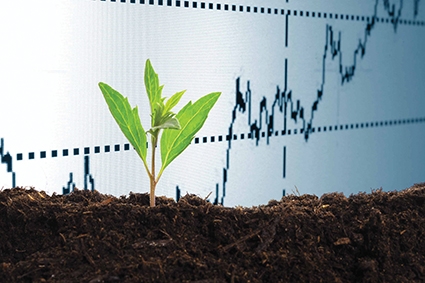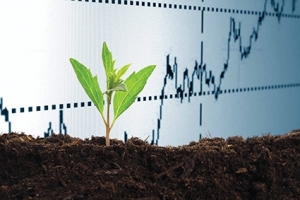Armenia Develops New Water-Saving Fertilizer
Director of Eco Technology, Ashot Baghdasaryan, has revealed a new fertilizer which is capable of holding water.
“The fertilizer granules take water from the soil (either from rain or irrigation) and return them to the plant, when and as needed.”
The fertilizer, he added, not only saves water, but also preserves nutrients in the soil.
“Typically, a plant does not always have time to fully absorb what is then lost to the ground water. Nutrients can sink into deep waters, and the earth becomes poorer for it. Our fertilizer granules accumulate not only water but also those nutrients,” said Baghdasaryan.
According to the company, the fertilizer not only softens the consequences of unfavourable climatic conditions, be it drought or excessive damp, but also creates normal conditions for plant growth by absorbing and giving up to 90% of the accumulated moisture to the plant regardless of soil quality or type.
In general, the new fertilizer is claimed to help increase the yield of a crop by 40 - 60%. In addition, the material is biodegradable, meaning that ground waste does not remain.
The fertilizer, named ‘Aquasource,’ has already passed a series of tests by volunteer farmers. In addition, the fertilizer is being tested in a number of international programs - one of the World Bank’s projects, WWF’s tree planting project in the Trchkan gorge, Armenia, and the United Nations Industrial Development Organization (UNIDO) which involves the planting of an orchard on the banks of Lake Sevan.
The new product has already captured interest overseas - in Iran, Russia, the USA, India, the UAE, South Africa and Namibia.
“We want to deliver commercially, but need to produce more,” Baghdasaryan said. “At present we are turning out 1.5 tons per month; we aim to bring that up to 15 - 20 tons with the funds awarded us by the grant program ‘Matching Grants’ of the Enterprise Incubator Foundation (EIF), to the amount of USD 50 thousand (the same amount in terms of investment that it took to build the company itself). 1 kg of fertilizer can benefit 330 plants, or, on average, 90 kg is required per 1 ha. of land. Of course, not all of our farmers believe in it yet, thinking it an unnecessary expense, but when you sit down and calculate just how much it can increase productivity, it’s easy to see the benefits will soon outweigh the costs of the fertilizer,” he added.
Dimitri Dolaberidze











